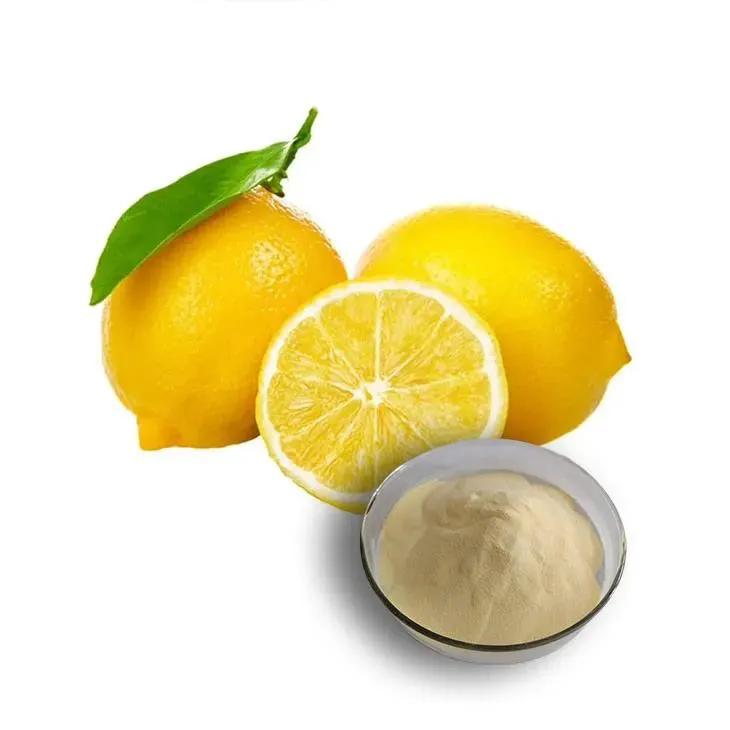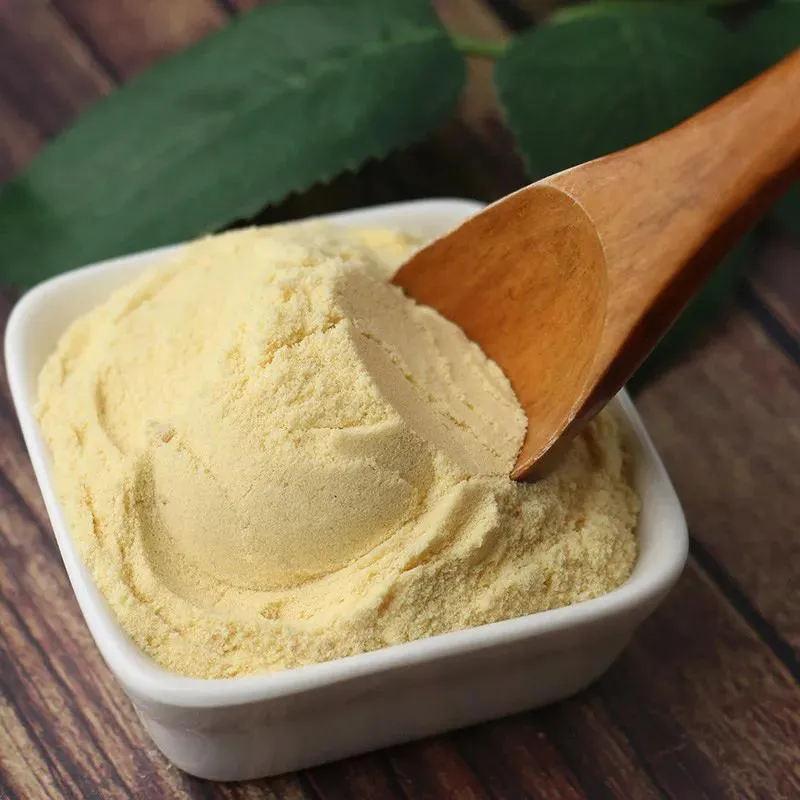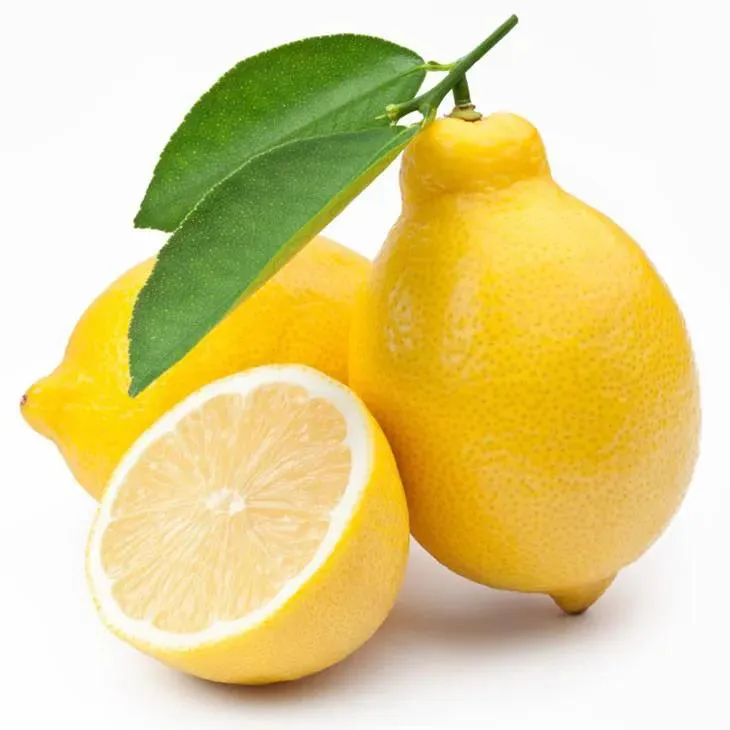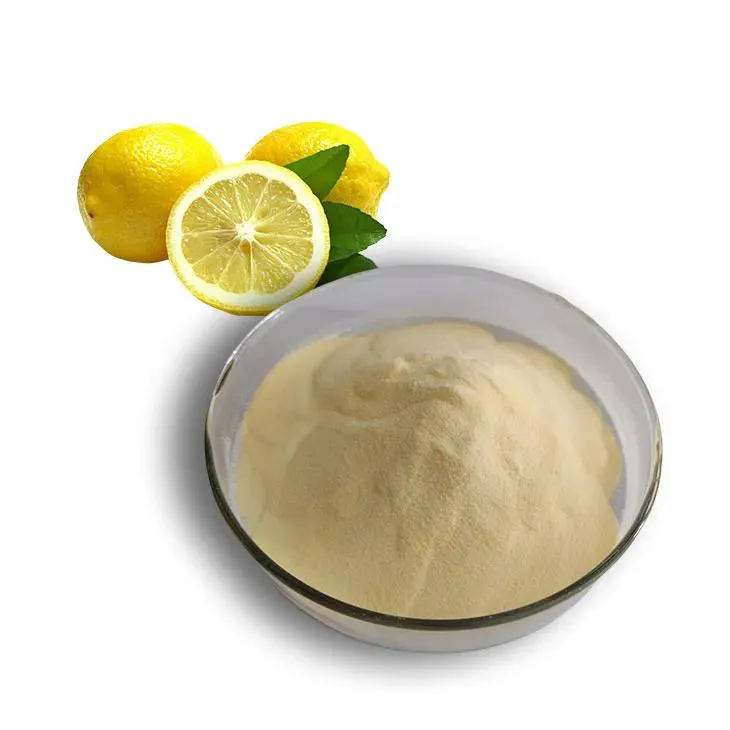- 0086-571-85302990
- sales@greenskybio.com
How to make powder with lemon juice powder.
2024-11-30

1. Introduction
Lemon Juice Powder is a versatile ingredient that can be used in a variety of applications, from culinary uses to natural health remedies. Making powder with Lemon Juice Powder involves a series of steps that require attention to detail to ensure the best results. In this article, we will explore the process of creating powder from Lemon Juice Powder, including the science behind it, preservation of flavor and nutrients, troubleshooting common problems, and creative ways to use the final product.

2. The Science behind Powder Formation
2.1 Dehydration Process
The key to turning lemon juice into powder is the dehydration process. When lemon juice is dehydrated, the water content is removed, leaving behind the concentrated solids. This can be achieved through various methods such as air drying, oven drying, or using a dehydrator.- Air drying: This is a natural method where the lemon juice is spread thinly and allowed to dry in a well - ventilated area. However, it is a slow process and may expose the juice to contaminants.
- Oven drying: Set the oven to a low temperature, usually around 120 - 140°F (49 - 60°C). Place the lemon juice in a thin layer on a baking sheet and leave it in the oven for several hours. This method is faster than air drying but requires careful temperature control to avoid over - heating.
- Dehydrator: A dehydrator is a specialized appliance that provides a controlled environment for drying. It is ideal for making lemon juice powder as it can maintain a consistent temperature and air flow, resulting in a more even drying process.
2.2 Particle Aggregation
As the water is removed during dehydration, the remaining substances in the lemon juice start to come together or aggregate. This is due to the surface properties of the particles. The lemon juice contains various compounds such as sugars, acids, and flavor compounds. These substances interact with each other as the water is removed, forming a solid mass that can be further processed into a powder. For example, the citric acid in lemon juice can play a role in binding the other components together.
3. Preserving the Flavor and Nutrients of Lemons
3.1 Temperature Control
One of the most important factors in preserving the flavor and nutrients of lemons during the powder - making process is temperature control. High temperatures can cause the degradation of volatile flavor compounds and the destruction of heat - sensitive nutrients such as vitamin C.- When using an oven, it is crucial to keep the temperature low. As mentioned earlier, a temperature range of 120 - 140°F (49 - 60°C) is ideal. This slow drying process helps to retain the natural lemon flavor and the nutritional value.
- In a dehydrator, set the temperature according to the manufacturer's instructions, usually in the lower range for optimal preservation.
3.2 pH Adjustment
The pH of lemon juice is acidic, mainly due to the presence of citric acid. Maintaining the proper pH can also contribute to the preservation of flavor and nutrients.- During the drying process, if the pH is too high or too low, it can affect the stability of the compounds in the lemon juice. A slightly acidic pH, close to the natural pH of lemon juice (around 2 - 3), is preferred.
- However, be cautious when adjusting the pH as adding too much acid or alkali can change the taste and quality of the final powder.
3.3 Use of Antioxidants
Another way to preserve the quality of lemon juice powder is by using antioxidants. Antioxidants can prevent the oxidation of certain compounds in the lemon juice, which can lead to off - flavors and nutrient loss.- Natural antioxidants such as vitamin C itself (which is already present in lemon juice) can be enhanced by adding a small amount of additional vitamin C powder. This can help to protect the other components during the drying and storage process.
- Some other natural antioxidants like Rosemary extract can also be considered. Rosemary extract contains compounds that can inhibit oxidation and has been used in the food industry for its antioxidant properties.

4. Troubleshooting Common Problems during the Production Process
4.1 Uneven Drying
Uneven drying can result in a product that has inconsistent texture and quality.- If using an oven, make sure that the heat distribution is even. You can rotate the baking sheet during the drying process to ensure all parts of the lemon juice are dried evenly.
- In a dehydrator, check if the trays are loaded evenly and if there are any obstructions to the air flow. If some parts of the dehydrator are hotter than others, it may cause uneven drying.
4.2 Clumping
Clumping is a common problem when making lemon juice powder. This can occur due to the presence of moisture or improper drying.- If the powder clumps together, it may mean that there is still some residual moisture. In this case, further drying may be required. You can return the clumped powder to the dehydrator or oven for a short additional drying time.
- Another reason for clumping could be that the powder was not cooled properly before storage. When the warm powder is stored, the moisture in the air can condense on it, causing it to clump. So, always allow the powder to cool completely in a dry environment before storing.
4.3 Loss of Flavor
A significant loss of flavor can be disappointing when making lemon juice powder.- If the drying temperature was too high, it is likely that the volatile flavor compounds were lost. In future attempts, lower the drying temperature and extend the drying time if necessary.
- Exposure to air for a long time during the drying process can also cause flavor loss. Minimize the exposure to air by using a container with a tight - fitting lid or by covering the lemon juice during drying as much as possible.

5. Creative Ways to Use the Final Product
5.1 Culinary Applications
Lemon juice powder has a wide range of culinary uses.- It can be used as a substitute for fresh lemon juice in baking. For example, in lemon cakes, cookies, or muffins. Just rehydrate the powder with a small amount of water according to the recipe requirements and use it as you would fresh lemon juice.
- In savory dishes, it can add a tangy flavor. Sprinkle it on fish, chicken, or vegetables before cooking to enhance the flavor. It can also be used in salad dressings, replacing the fresh lemon juice component.
- For making lemon - flavored beverages, dissolve the powder in water and add sweeteners if desired. You can create lemonade or add it to iced tea for a refreshing twist.
5.2 Health and Wellness
Lemon juice powder also has potential health benefits.- It can be used as a natural digestive aid. Dissolve a small amount of the powder in warm water and drink it before or after meals to help with digestion, similar to how fresh lemon juice is used.
- As a source of vitamin C, it can be added to smoothies or juices to boost the nutritional content. Vitamin C is important for immune function, skin health, and antioxidant protection.
- Some people use lemon juice powder in homemade face masks or body scrubs for its exfoliating and brightening properties. However, it should be used with caution on the skin as it is acidic.
5.3 DIY Beauty Products
- In hair care, lemon juice powder can be used to make a natural hair lightener. Mix the powder with water to form a paste and apply it to the hair. Leave it on for a while and then rinse. However, repeated use may dry out the hair, so it should be used sparingly.
- For making a natural deodorant, combine lemon juice powder with other natural ingredients such as baking soda and coconut oil. The lemon juice powder helps to combat odor while the other ingredients provide different functions like absorption and moisturizing.
6. Conclusion
Making powder with lemon juice powder can be a rewarding process. By understanding the science behind powder formation, taking steps to preserve the flavor and nutrients, troubleshooting common problems, and exploring creative ways to use the final product, you can create a high - quality lemon juice powder that can be used in various applications. Whether for culinary, health, or beauty purposes, lemon juice powder offers a convenient and versatile option.
FAQ:
Question 1: What are the basic ingredients needed to make powder with lemon juice powder?
To make powder with lemon juice powder, you will primarily need lemon juice powder itself. Additionally, you might need a drying agent such as maltodextrin (which can help in the drying process and improve the texture of the final powder). Some recipes may also call for a small amount of citric acid to enhance the tartness and preserve the lemon flavor.
Question 2: How can we preserve the flavor of lemons when making lemon juice powder?
To preserve the lemon flavor, it is important to start with high - quality, fresh lemon juice (if making the powder from scratch). During the drying process, keep the temperature low and the drying time appropriate. Adding a small amount of natural preservatives like citric acid can also help. Also, proper storage in an airtight container away from heat and light is crucial for maintaining the flavor.
Question 3: What are the common problems during the production process of making powder with lemon juice powder and how to solve them?
One common problem is clumping. This can be due to moisture. To solve this, ensure the drying process is complete and store the powder in a dry environment. Another issue could be loss of flavor. As mentioned before, controlling the drying conditions and adding appropriate preservatives can help. If the powder has a bitter taste, it might be because of over - drying or using low - quality lemon juice. Using fresh, good - quality juice and monitoring the drying process carefully can prevent this.
Question 4: How can we use the final lemon juice powder product?
The lemon juice powder can be used in many ways. It can be added to water to make a quick lemonade. It can be used in baking as a substitute for fresh lemon juice, adding a tangy flavor to cakes, muffins, or cookies. It can also be sprinkled on fruits or used in salad dressings to give a lemony zing.
Question 5: What is the role of maltodextrin in making powder with lemon juice powder?
Maltodextrin plays a significant role in making powder with lemon juice powder. It acts as a drying aid, helping to remove moisture more effectively during the drying process. It also improves the texture of the final powder, making it less likely to clump and more easily soluble. Additionally, it can help in binding the lemon juice components together in powder form.
Related literature
- The Science of Powder Production from Fruit Juices"
- "Preserving Nutrients in Powdered Fruit Products"
- "Advanced Techniques in Flavor Preservation during Powder Making"
- ▶ Hesperidin
- ▶ citrus bioflavonoids
- ▶ plant extract
- ▶ lycopene
- ▶ Diosmin
- ▶ Grape seed extract
- ▶ Sea buckthorn Juice Powder
- ▶ Beetroot powder
- ▶ Hops Extract
- ▶ Artichoke Extract
- ▶ Reishi mushroom extract
- ▶ Astaxanthin
- ▶ Green Tea Extract
- ▶ Curcumin Extract
- ▶ Horse Chestnut Extract
- ▶ Other Problems
- ▶ Boswellia Serrata Extract
- ▶ Resveratrol Extract
- ▶ Marigold Extract
- ▶ Grape Leaf Extract
- ▶ blog3
- ▶ blog4
-
The best marigold extract in nature.
2024-11-30
-
The best sophora flower extract in nature.
2024-11-30
-
The best organic white willow bark extract.
2024-11-30
-
100% Organic Epimedium Extract Powder.
2024-11-30
-
Cat Claw Extract
2024-11-30
-
Chasteberry Extract
2024-11-30
-
Quercetin
2024-11-30
-
Avocado Extract Powder
2024-11-30
-
Lily extract
2024-11-30
-
Longan Extract
2024-11-30
-
Ivy Extract
2024-11-30
-
Centella Asiatica Extract
2024-11-30
-
Oat Straw Extract Powder
2024-11-30
-
Mulberry Extract
2024-11-30





















